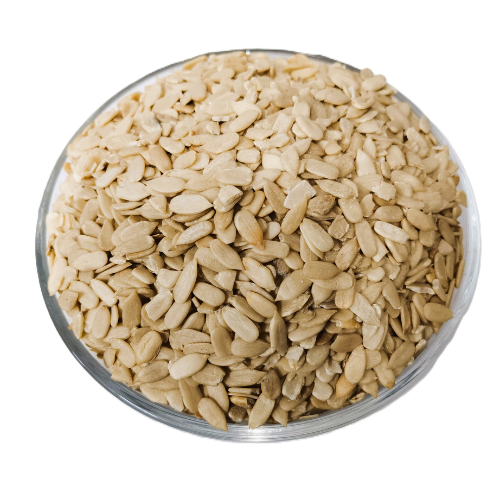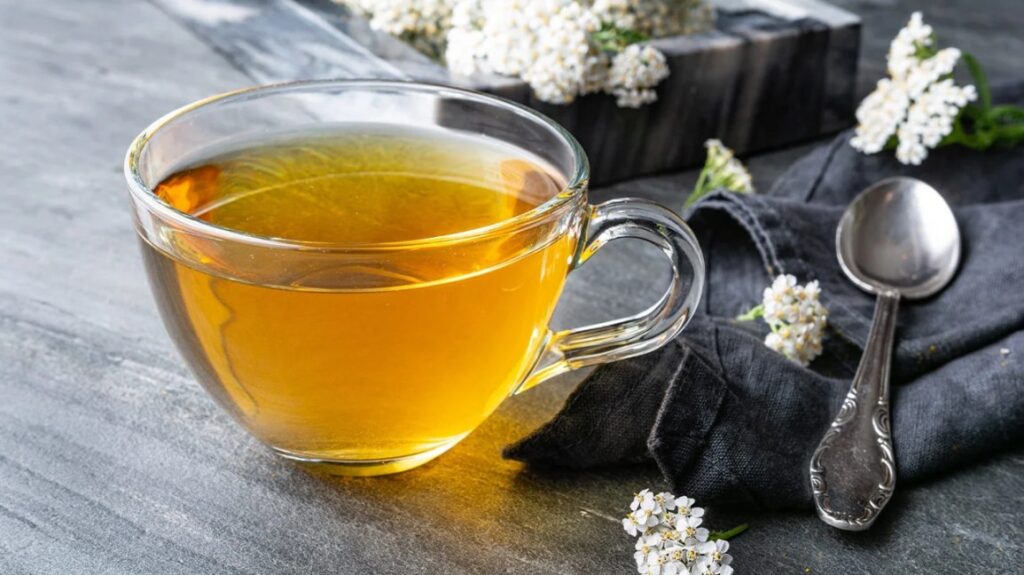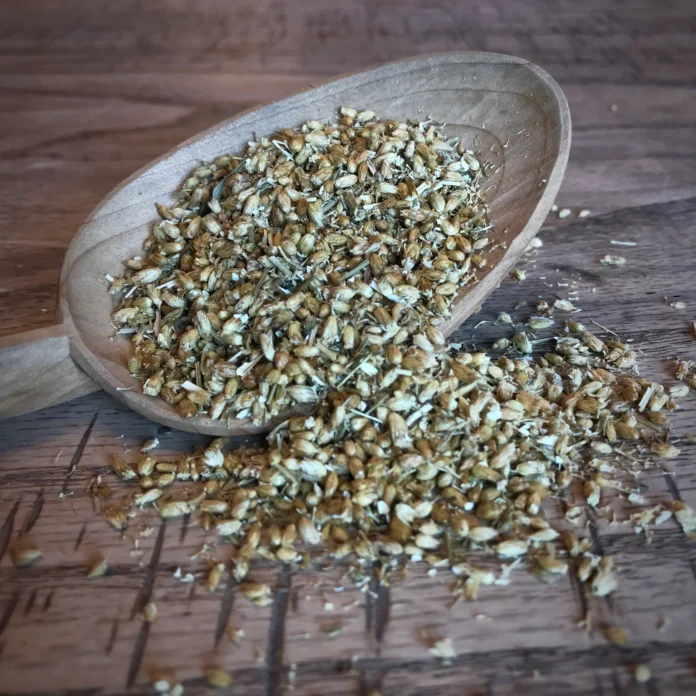INTRODUCTION:
Yarrow (Achillea millefolium) is a hardy, perennial herb native to temperate regions of the Northern Hemisphere. Known for its feathery leaves and clusters of small, fragrant flowers, yarrow has long been valued for both its ornamental beauty and medicinal properties. Yarrow seeds are small and light, typically brown or grayish in color, and can be easily propagated to produce resilient plants that thrive in a variety of soil types. Because yarrow is drought-tolerant and attracts beneficial insects such as bees and butterflies, it is commonly used in wildflower gardens, herbal medicine cultivation, and ecological landscaping.

Sanskrit: Gandharo, Rajashiva, Sughanda-patra
Hindi: Gandharas, Yaro, Dava-ki-jhadi
Bengali: Gandharas
Marathi: Gandharasa
Gujarati: Gandharas
Tamil: Karpoora Mooligai, Sughanda Pattai
Telugu: Gandharasam, Sugandhaaku
Kannada: Gandharasa gida
Malayalam: Gandharasa chedi
Punjabi: Gandharas Booti
Urdu: تخم گند نا
HEALTH BENEFITS:

Wound healing:
Its astringent properties help reduce bleeding in minor cuts, scrapes, and nosebleeds. It is sometimes used as a poultice on wounds or to help heal cracked nipples associated with mastitis.
Digestive health:
Yarrow can act as a bitter and aromatic herb to stimulate appetite, promote bile flow, and ease indigestion, bloating, and cramps. It may also help with inflammation in the digestive tract.
Menstrual health:
It has been traditionally used to relieve menstrual cramps and other spasms due to its antispasmodic properties. It is also thought to support more regular periods.
Anti-inflammatory:
Yarrow’s anti-inflammatory compounds can help reduce inflammation in the body, which may benefit conditions like arthritis and skin rashes.
Immune support:
It is traditionally used to help with fever by promoting sweating and is thought to stimulate the immune system to help the body fight off colds and flu.
Stress and anxiety relief:
Yarrow tea is sometimes used as a mild sedative to help calm anxiety, reduce stress, and promote relaxation.
Supports women’s health:
Yarrow is used to regulate menstrual flow and soothe menstrual cramps by relaxing the smooth muscles of the uterus.
Acts as an anti-inflammatory:
The plant contains compounds that may help reduce inflammation from conditions like arthritis.
SIDE EFFECTS:

Allergic reactions:
People with allergies to plants in the Asteraceae/Compositae family, such as ragweed, daisies, and marigolds, are more likely to have an allergic reaction to yarrow.
Skin irritation:
Topical use, such as handling the plant or applying yarrow oil, can cause contact dermatitis or skin rashes. Prolonged use can also increase photosensitivity, making skin more susceptible to sunburn.
Pregnancy and breastfeeding:
Yarrow is considered unsafe for oral use during pregnancy because it can affect the menstrual cycle and potentially cause a miscarriage. There is insufficient research to confirm its safety while breastfeeding.
Increased bleeding risk:
Yarrow can slow blood clotting. If taken with blood-thinning medications like warfarin or aspirin, it could increase the risk of bleeding. It should be discontinued at least two weeks before surgery.
Estrogenic effects:
Yarrow has estrogenic activity. Those with hormone-sensitive conditions like breast or uterine cancer should avoid it.
HOW TO USE:
As Herbal Tea:

Dry the yarrow leaves and flowers.
Add 1–2 teaspoons of the dried herb to a cup of hot water.
Let it steep for about 10 minutes, then strain.
You can drink it warm to help with colds, digestion, or relaxation.
2. For Skin and Wounds:
Fresh yarrow leaves can be gently crushed and applied to small cuts or insect bites to help stop bleeding and reduce inflammation.
You can also make a mild yarrow wash by boiling the leaves in water, cooling it, and applying it to the skin with cotton.
3. As an Aromatic Herb:
Dried yarrow flowers can be used in potpourri or herbal sachets to give a pleasant scent.
Yarrow’s natural aroma also helps repel some insects.
4. In Gardening:
Yarrow can be grown as a border plant or in herbal gardens.
It improves soil quality and attracts pollinators like bees and butterflies.
5. In Hair and Skin Care (Traditional Use):
A yarrow infusion (yarrow boiled in water) is sometimes used as a natural hair rinse to soothe the scalp.
It may also be added to bath water for a refreshing, cleansing soak.
Note:
Always use yarrow in moderation.
Pregnant or breastfeeding women should avoid using it internally.
People allergic to plants in the daisy family (like chamomile or ragweed) should be cautious.




